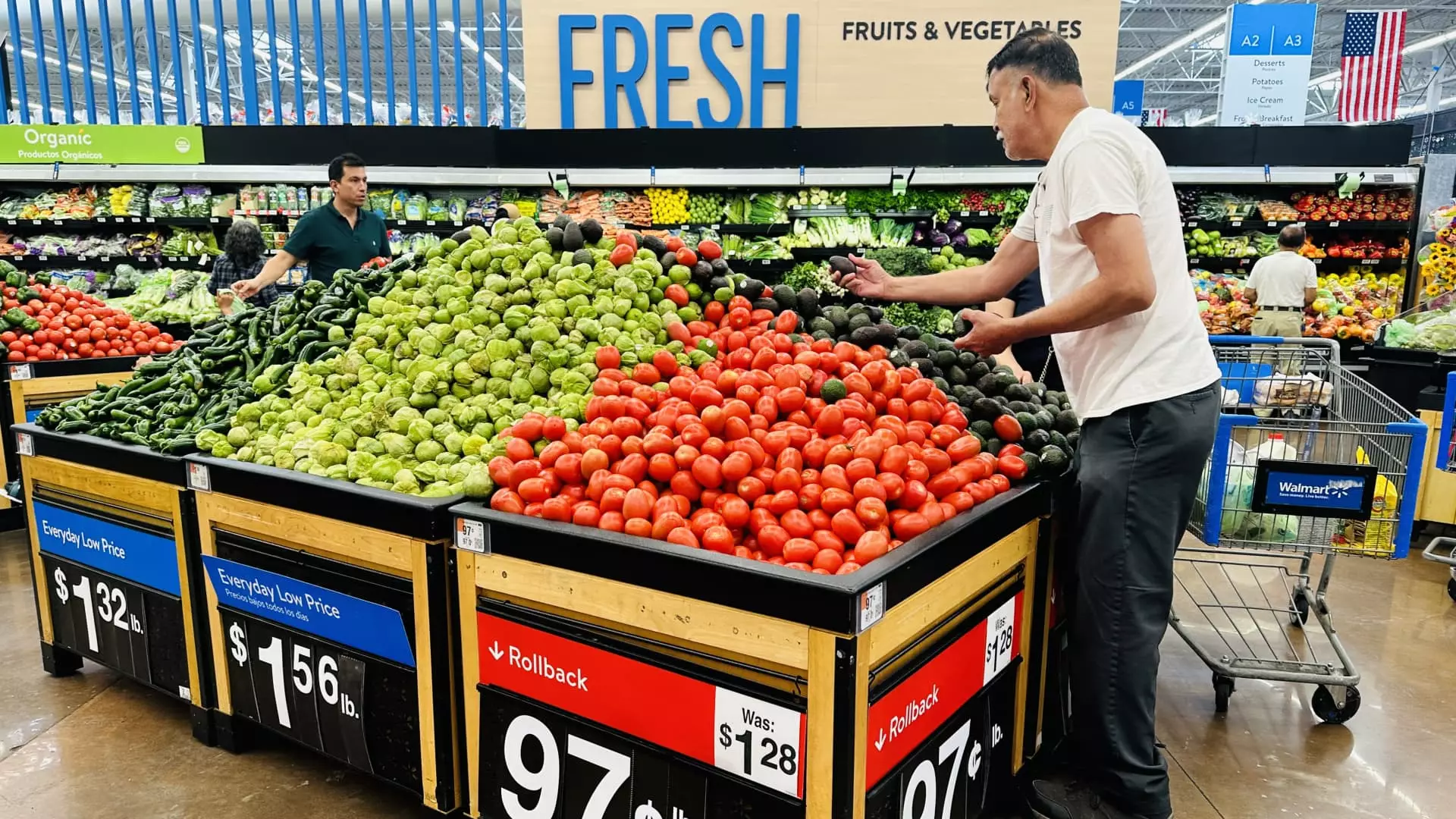The surge in Buy Now, Pay Later (BNPL) loans among American consumers is a profoundly troubling trend that reflects deeper issues in economic stability. Recent data from Lending Tree indicates a staggering rise in the number of individuals utilizing these loans to cover essential expenses, particularly groceries. This phenomenon marks a shift in consumer behavior that underlines a troubling reality: many Americans are resorting to financial tools that might alleviate immediate burden but ultimately compromise their long-term financial health. As inflation and high-interest rates continue to bite, it seems that the American dream is morphing into an ongoing struggle for survival.
According to the survey conducted by Lending Tree, approximately 50% of U.S. consumers have tapped into BNPL services, and a shocking 25% of these users are leveraging this form of credit to purchase groceries. This figure represents a drastic increase from previous years, indicating a trend that can’t just be dismissed as a momentary lapse in consumer spending habits. Instead, it reveals a widespread sentiment of insecurity fueled by economic factors that many individuals are ill-equipped to navigate. This reliance on BNPL loans exposes a critical flaw in our socio-economic fabric, where access to what should be basic necessities has become a financial burden for so many.
The Cost of Convenience
One of the most significant critiques of the BNPL model is its inherently deceptive nature; while these loans may appear appealing due to their lack of immediate interest, they often come with punitive fees for those who fall behind on payments. Lending Tree’s findings reveal that 41% of BNPL users reported late payments in the past year, a notable increase that should concern any observer of financial accountability. The ramifications of this mismanagement spiral quickly—many consumers, seduced by the convenience of BNPL loans, find themselves caught in an endless cycle of debt that only exacerbates their financial woes.
Matt Schulz, Lending Tree’s chief consumer finance analyst, poignantly highlights that while some individuals report late fees of just a week or so, the reality is more nuanced. The economic pressure is palpable and profoundly distressing. Families pushed to the brink by rising costs are now increasingly reliant on BNPL as a means to stretch their budgets—a situation that raises serious alarms about the future of responsible financial behavior among consumers.
A New Normal or a Detrimental Trend?
With an alarming proportion of BNPL users holding multiple loans at any given time, the question arises: are we witnessing the formation of a disconcerting new normal? Nearly 60% of BNPL users confessed to juggling several loans simultaneously. This revelation should send shivers down the spine of anyone who values sound financial planning. It brings to light how easily consumers can fall into the trap of short-sighted financial solutions that inadvertently lead to greater distress.
The recent trends around events like Coachella further highlight the absurdities of current consumer culture—where 60% of general admission attendees funded their concert tickets through BNPL loans. While many might scoff at the idea of financing entertainment expenses, the underlying message is one of deep-seated desperation. As individuals are driven to compromise their financial nourishment for fleeting moments of joy, it is evident that the very fabric of our economy is fraying at the edges.
Rediscovering Responsible Spending
Amid this chaos, one could argue that the conversation needs to shift from the allure of immediate gratification to the importance of cultivating financial discipline. The reality is that while BNPL loans might ease the short-term pressure, they can precipitate long-term repercussions that few consumers are prepared for. The financial pitfalls associated with BNPL loans serve as a potent reminder of the need for prudent spending habits and financial literacy.
Returning to a culture of responsible spending in a landscape dominated by quick, easy credit will not be an easy task—but it’s a necessary one. It involves reshaping consumer perceptions around money management and encouraging individuals to weigh the implications of their financial choices. The current state of dependence on BNPL loans reveals a critical need for education and awareness surrounding the risks of mismanaged financial tools, especially in an economy that does not show signs of immediate recovery.
We stand at a crossroads where either we recognize the dangers of our consumer patterns or continue down a path that leads to financial hardship for many. The time for critical introspection and reevaluation of our economic practices is now.

